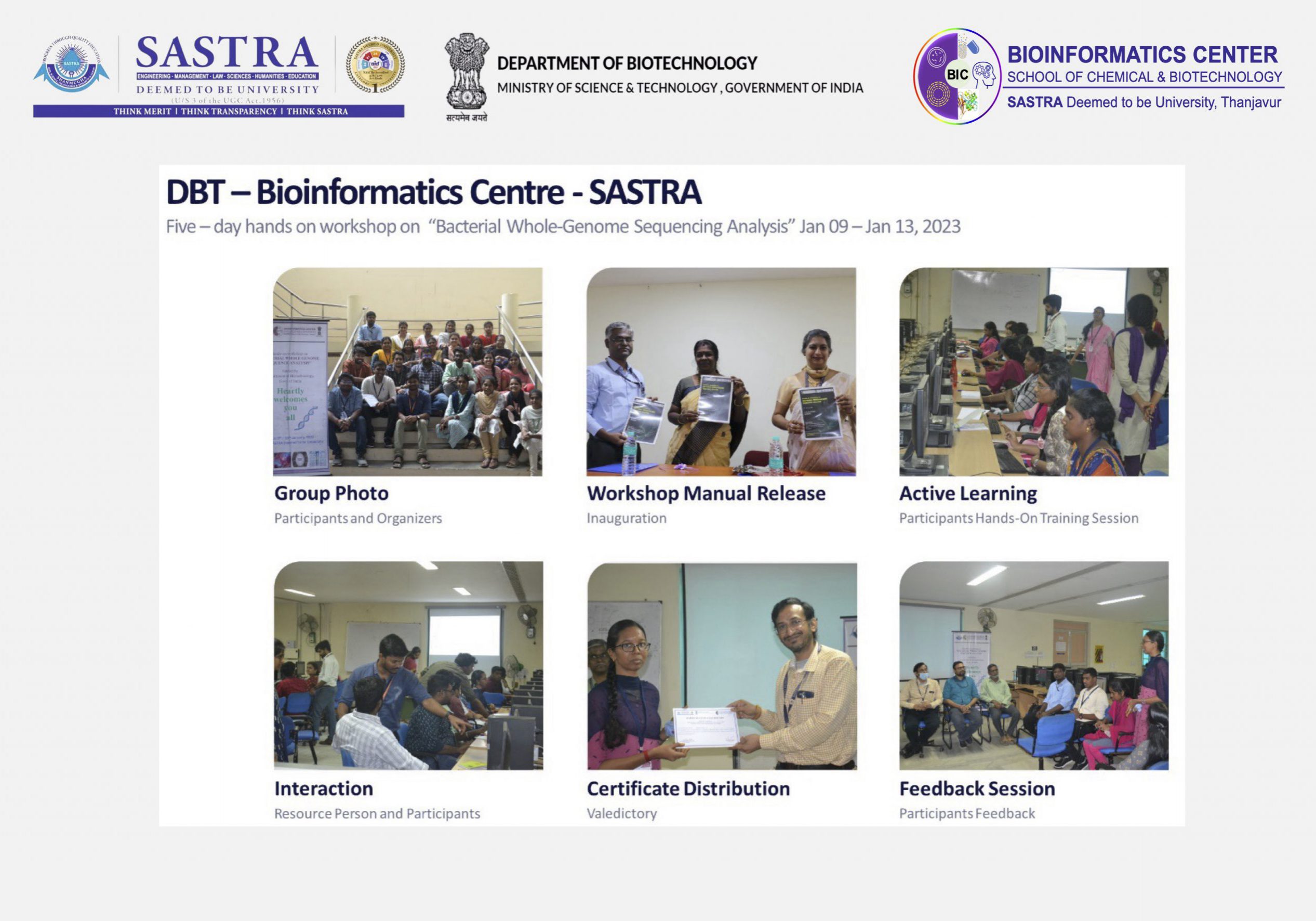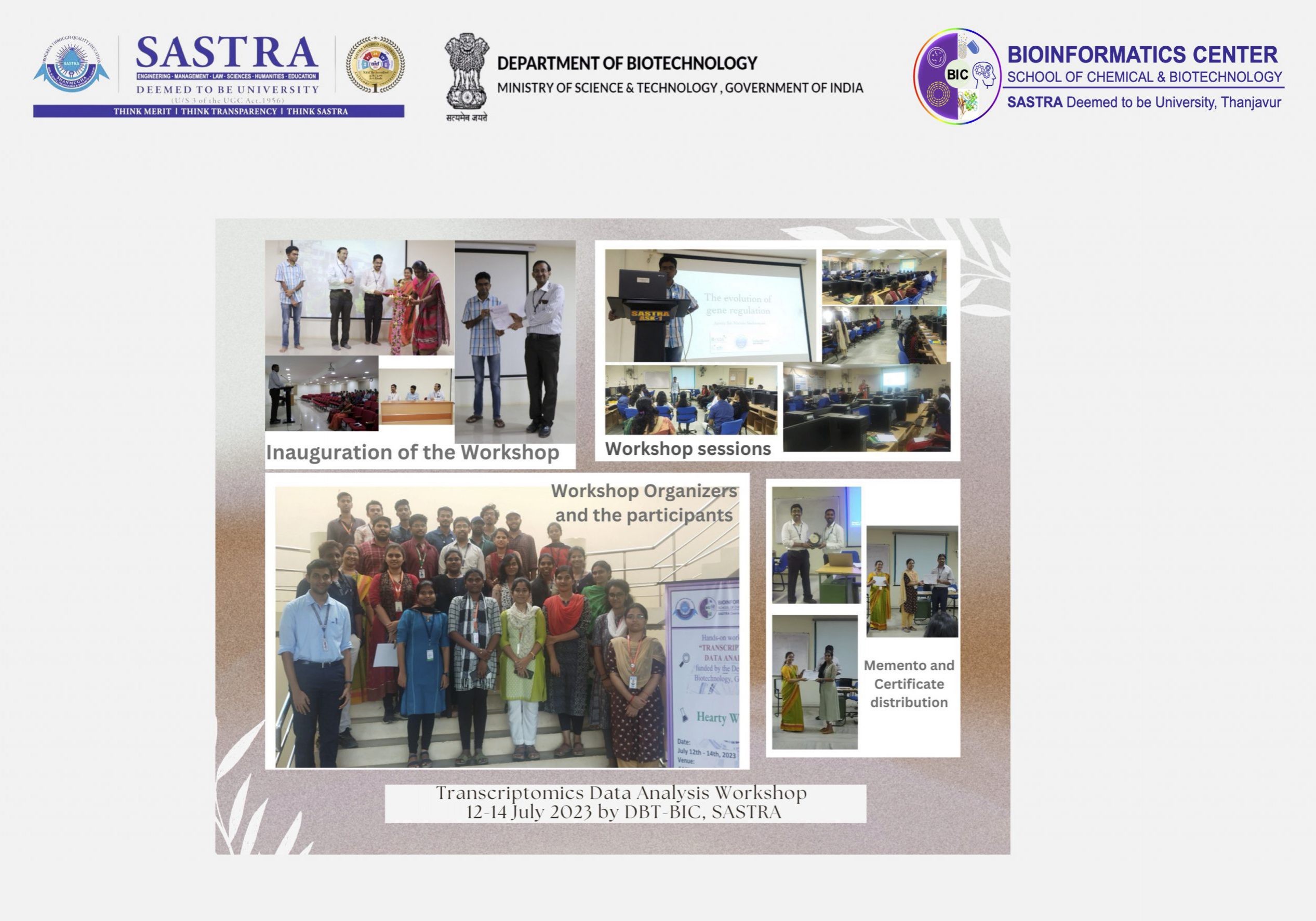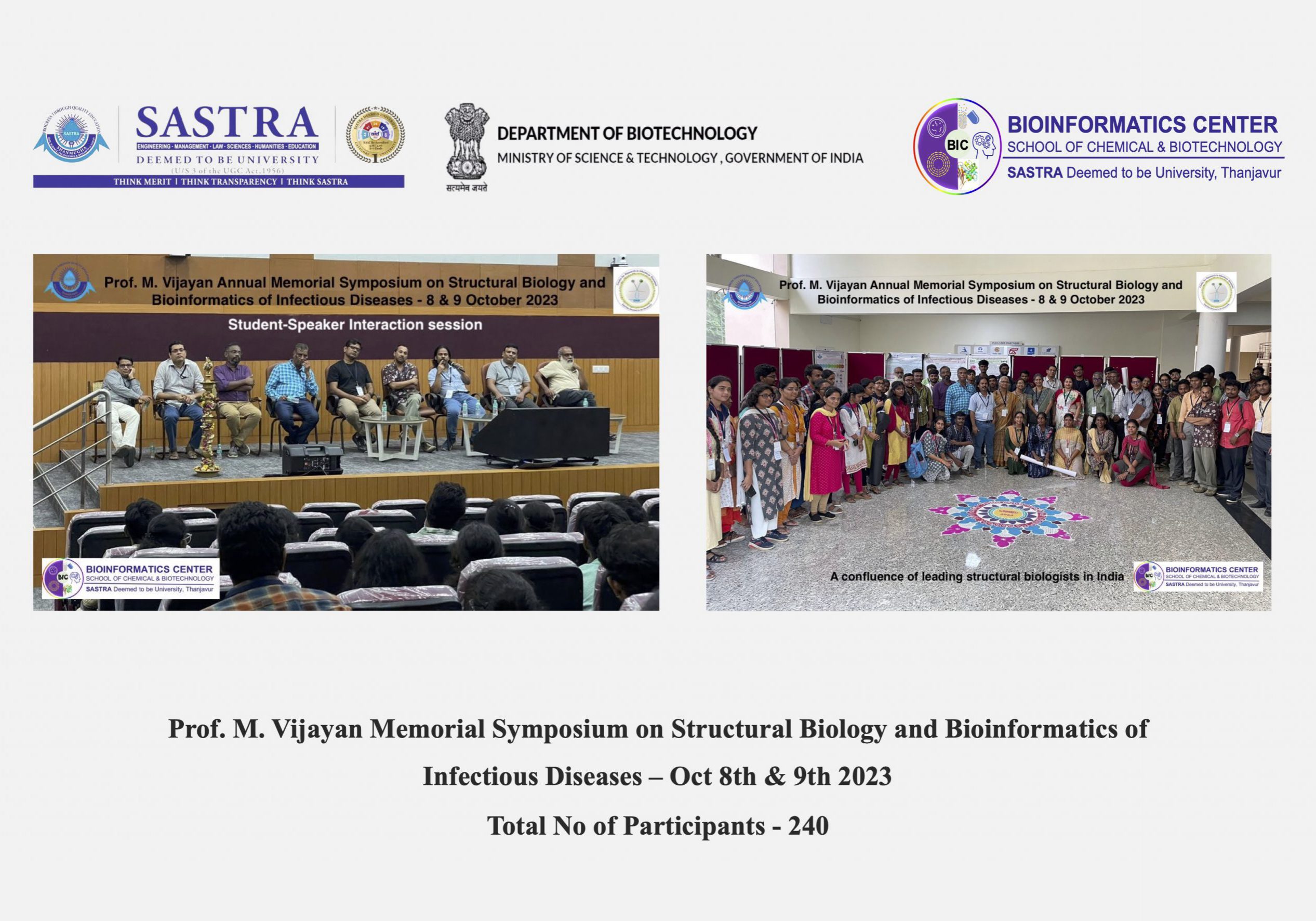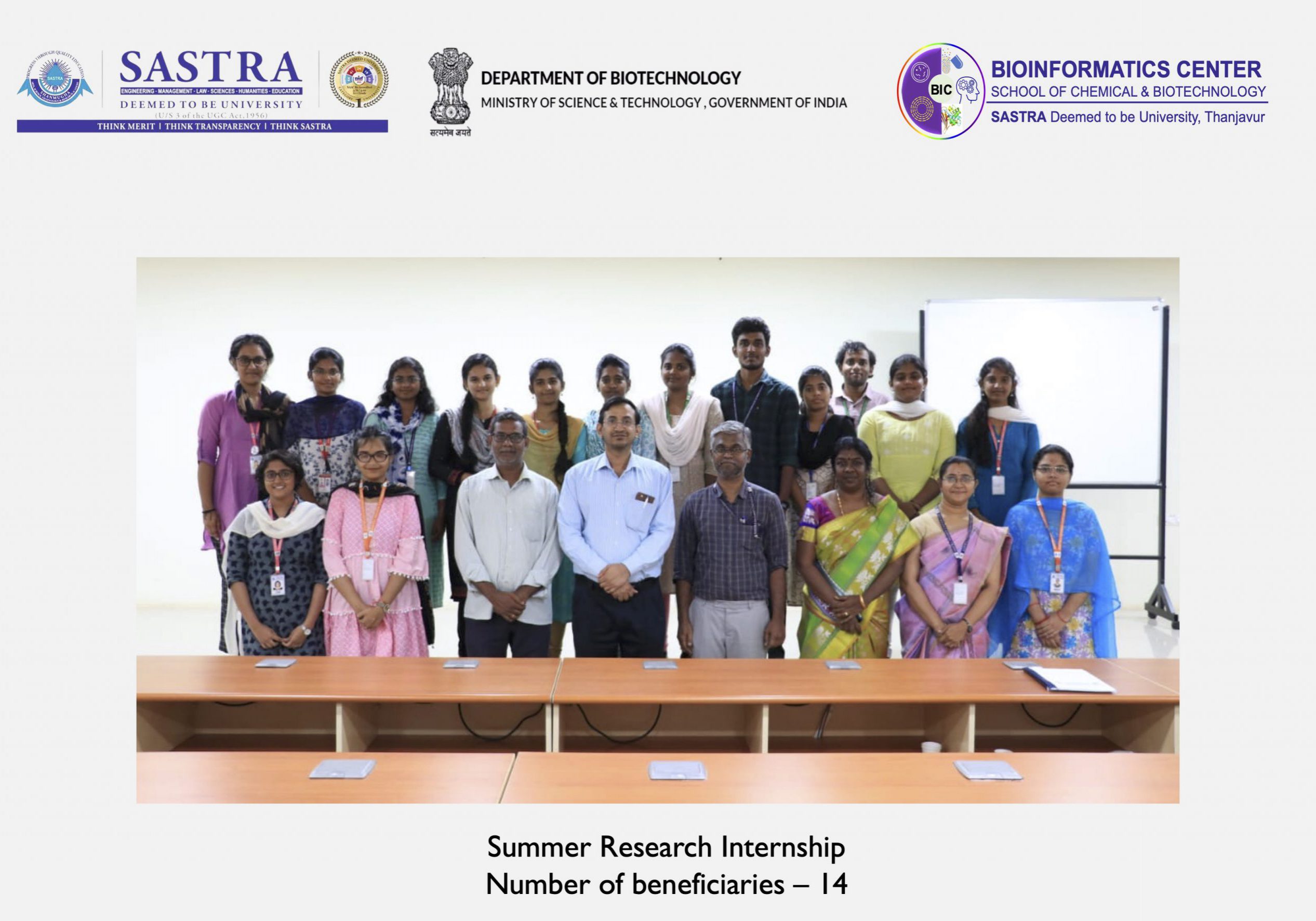SASTRA, Thanjavur
Confronting Antimicrobial Resistance: A Holistic Approach Integrating Comparative Genomics, Structural Bioinformatics, and Machine Learning at SASTRA, Thanjavur
The Bioinformatics Center at SASTRA, Thanjavur, is dedicated to advancing understanding and combating antimicrobial resistance through the integration of comparative genomics, structural bioinformatics, and machine learning for resistome analysis. The center leverages whole-genome sequence data to identify missense variants in AMR genes, delving into structural and molecular dynamics to comprehend changes related to resistance. Employing machine learning methods, the center differentiates between wild and mutant dynamics, identifies features contributing most to learning resistance mutants, and surveys the mutation space to pinpoint new resistance mutations. Furthermore, the center employs a machine-learning framework to rank resistance mutants based on their antibiotic resistance mediating potential.
This center has conducted five hands-on workshops covering topics such as bacterial whole-genome sequence analysis, biomolecular modeling simulations, and transcriptome analysis, benefiting over 100 students. Additionally, it offers summer research internships, providing students with training in various techniques, including molecular docking, simulations, genomic analyses, and machine learning. The center utilizes the state-of the-art Schrödinger suite of tools for drug discovery applications. Further, a database of non- synonymous mutations in bacterial pathogens has been created and is on the verge of public deployment. The unique approach of this center lies in integrating structural bioinformatics, comparative genomics, and machine learning to address the challenge of antimicrobial
resistance.


The escalating threat of antimicrobial resistance (AMR) in India, particularly among ESKAPE pathogens, underscores the need for accurate identification to facilitate effective therapeutic interventions. Next-generation sequencing technology provides opportunities for systematic studies of pathogen genomes and phenotypic profiling, offering improved surveillance, control, and treatment options.
The center's NNP partners, CMC Vellore and AIIMS, New Delhi, play a crucial role by providing genomic data of Indian clinical isolates. This data is essential for discovering genomic patterns specific to Indian bacterial lineages and for identifying lead molecules tailored to Indian strains. The overarching goal is to establish genomic correlations with AMR at local and regional levels, predict resistance-conferring mutants using machine learning, and design molecular scaffolds for novel drug leads.


